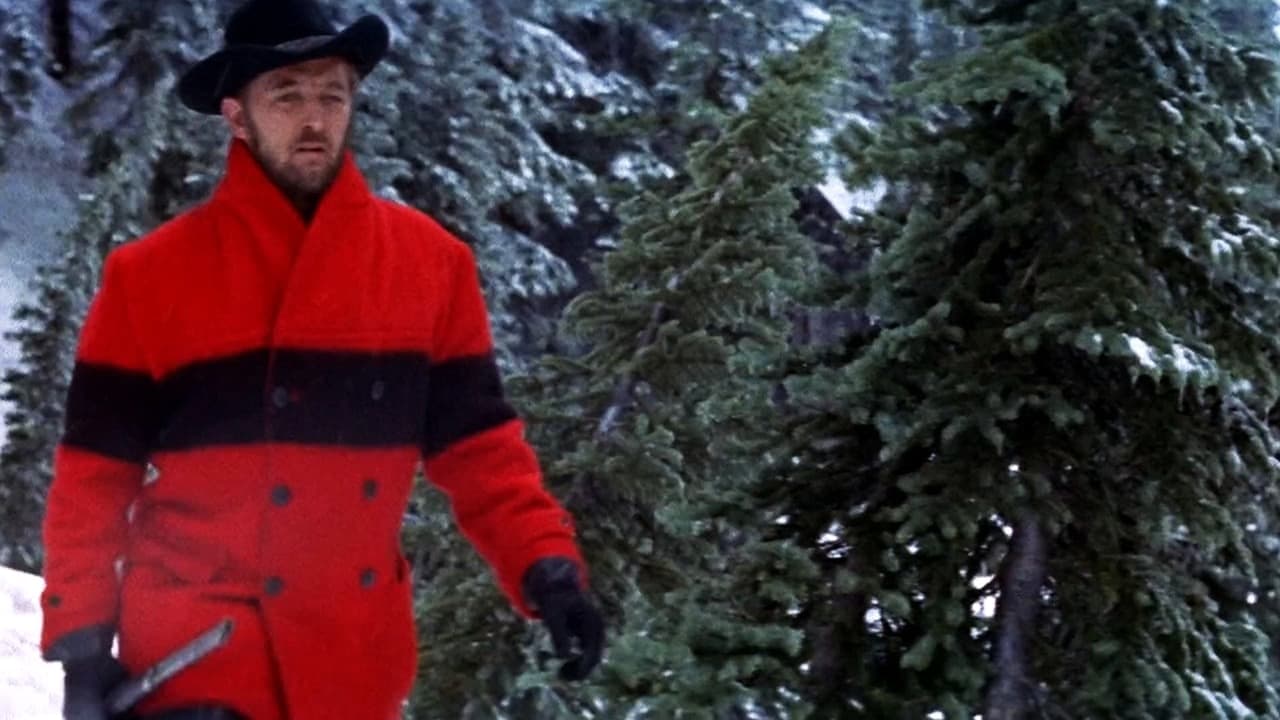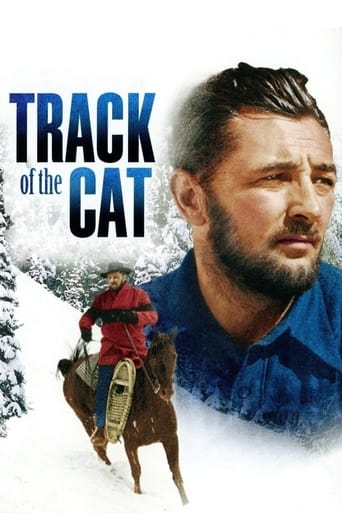

This Movie Can Only Be Described With One Word.
... View MoreThe biggest problem with this movie is it’s a little better than you think it might be, which somehow makes it worse. As in, it takes itself a bit too seriously, which makes most of the movie feel kind of dull.
... View Morewhat a terribly boring film. I'm sorry but this is absolutely not deserving of best picture and will be forgotten quickly. Entertaining and engaging cinema? No. Nothing performances with flat faces and mistaking silence for subtlety.
... View MoreIt is an exhilarating, distressing, funny and profound film, with one of the more memorable film scores in years,
... View MoreRobert Mitchum puts in an outstanding performance here as the mean son at the head of a dysfunctional family in a harsh snowy landscape at around the turn of the century. Mitchum's is a detailed performance worth watching very closely to observe a great actor in action.The film is fascinating boasting several strong characters at variance to each other, including an extrovert but unrealistic alcoholic father, a dried-up, sniping bible thumping mother and a thoughtful, kind older brother as well as Mitchum. Then there is the startling outdoors photography in the snowy mountain landscape. Mitchum remembered the film as the toughest he had ever been through. The snow is the backdrop for a panther legend believed by the old Indian help and played out for real as a panther is known to be in the area attacking the livestock. Two of the brothers try to track it down while the remaining family members in the home experience shifts in the balance of power.Track of the Cat is a stylised, expressionistic film that reminds of Charles Laughton's film with Robert Mitchum, The Night of the Hunter. So many of even Mitchum's best regarded films are very flawed, but Track of the Cat has many strengths not least a star on searing top form.
... View MoreDomineering middle child Robert Mitchum and his mother holds the rest of the family under their thumb, especially youngest child Tab Hunter, whom Mitchum takes particular delight in brow-beating. Tensions boil over on a snowy Winter, when a dangerous mountain lion descends on the valley and begins to kill livestock.Not an outdoor adventure, this is instead a depressing, talky frontier drama full of irritating, unsympathetic characters. There's some good performances, especially by the female cast members, though little else to offer the average film-goer looking for escapist entertainment.Similarly themed and much more exciting, was the low-budget 1949 film The Big Cat, directed by Phil Karlson and starring Preston Foster and Forrest Tucker. In that one you at least get to see the cat!
... View MoreTrack of the Cat (1954) ** (out of 4) Strange but ultimately disappointing family drama hiding behind the Western/Adventure genres. The film tells the story of a dysfunctional family stranded on a ranch during the 1880s. The family is bullied around by the middle son (Robert Mitchum) and his mother (Beulah Bondi) but the others begin to rise up as Mitchum is out tracking a deadly mountain lion. Okay, this is a film I had been wanting to watch for many years but within twenty-minutes I knew I was in trouble and the film never picked up. I was really shocked at how boring this film was considering Wellman was directing it and apparently this was a pet project of his. I'm not sure where to start but I guess we can mention all the family drama stuff, which naturally gets blamed on a bully and a religious freak. All of the drama here lacks any real drama and in fact all the characters just come off so obnoxious that I didn't care what happened to them. Another problem is the entire "track of the cat" with Mitchum wondering around without much to do. It seems Wellman never tries to build any tension in these scenes and one has to wonder why it was even in the story. I'm going to guess the cat was used to throw out that "good vs. evil" theme but it never works. I was also pretty disappointed in Mitchum's performance, which was dry and rather dull but then again I didn't care for any of the other performances either. It was strange seeing Carl 'Alfalfa' Switzer in the role of the elderly Indian and he certainly comes off the best. What does keep the film going is its beautiful cinematography captured in all its 2.55:1 glory. The scenery is another reason to watch the film with the snow covered mountains really coming off quite beautiful.
... View MoreOh, a rugged outdoor adventure that I had never heard of--with Robert Mitchum hunting a bad killer cat ...I was looking forward to it! Well there is a reason few people have heard of it...this movie is terrible! I mean, this is the type of movie where you keep on thinking it's going to get better, but it never does.Mitchum's family is losing livestock, then lives, to some big cat. The family calls it a "painter". Don't ask. The old dad of the bunch drinks and says crazy things. Mom is old Beulah Bondi with her weird eyes, quotin' the Good Word and hanging out all day and night with her son's corpse in his bedroom as he rots away. (Don't bother ma, she's corpse-sittin'!) Mitchum found the brother's body, no blood, no nothing, even still has color in his face! Hey, couldn't the makeup folks apply just a little makeup? Look closely and you'll see him shift a little bit after Mitchum puts him on his horse, if you can stand getting that far in this movie.Determined to go get that bad cat, or painter, Bob dons a bright red coat. This is the only color in the outdoor scenes as the director wanted it to look like black and white and shot things in shadows. Don't try to figure that one out.Late in the movie, there's a scene where Mitchum tries to light a fire and the wind keeps blowing out his matches. Finally he gets one going, only to have snow from a tree fall and put it out. It plays almost like a Laurel and Hardy moment.But that is right before the best part--and most action--of the whole movie. Right after he loses his fire, the sun starts coming up, and weeeeeee! Mitchum is so elated he starts running down the mountain side. Then he starts "body skiing". Then, all of a sudden, he falls down a big cliff, screaming like a woman, and is horribly killed. I kid you not.Then handsome Tab Hunter finds his dead body, but hears the cat "growling". He goes behind the bush and kills the cat. We never see that, because this cheesy production must have run out of cash for paying Mitchum so they couldn't afford a fake cat or renting one from a zoo.At the very end, the families old, nutty Indian worker babbles something very Indian-like about what death is all about. Some people don't realize even then that the old Indian is freaking Alfalfa from "Our Gang" in old Indian makeup.No, I am not making that up.One of the worst, slowest moving, dumb "westerns" you will ever see. I think some of the raters here must certainly be offspring of the original dumba%$ producers of this turkey, this rating is way high.
... View More